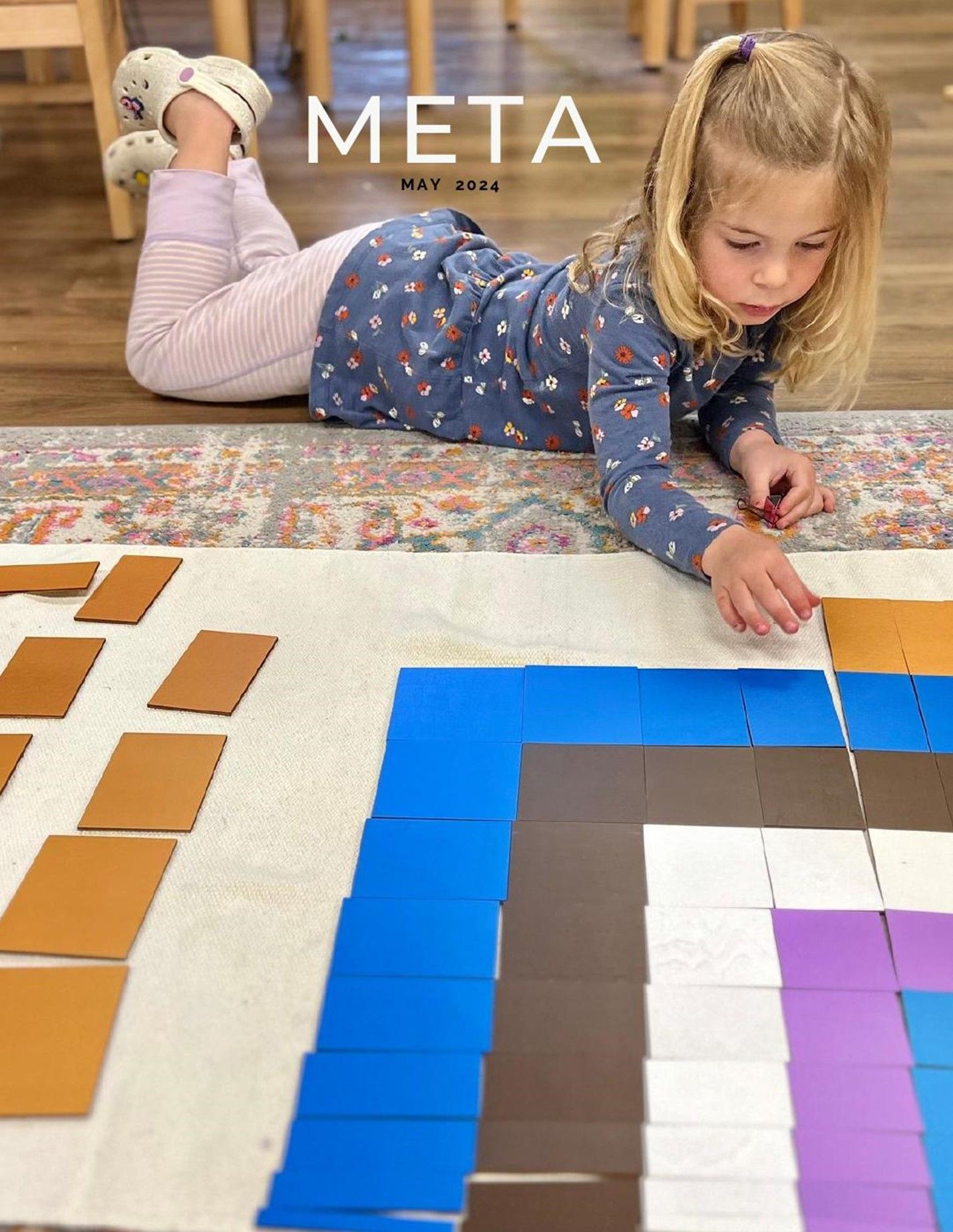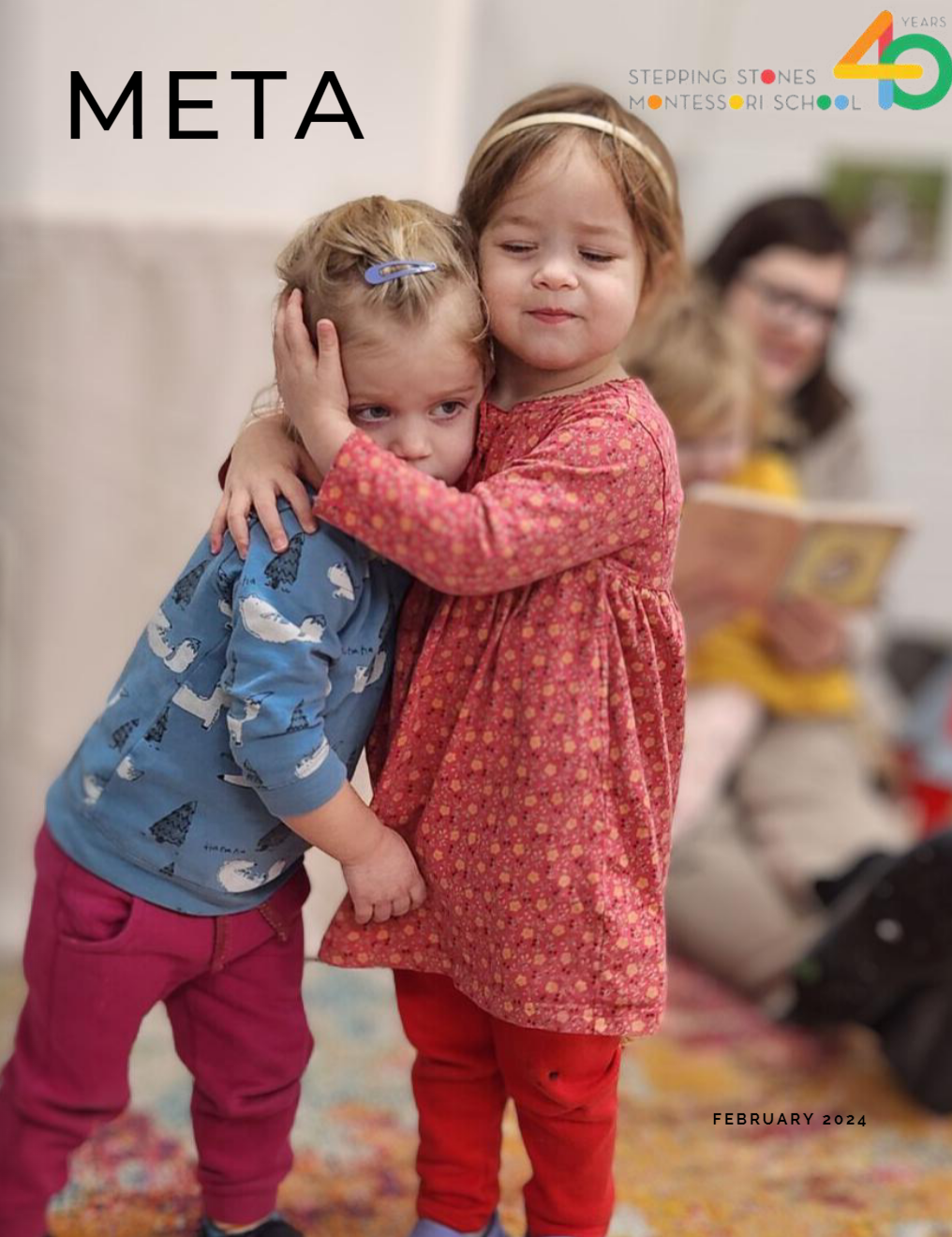One of the tough things about parenting is talking to your children about difficult things. Right now, the news can be pretty frightening, especially with regard to coverage of the 2019 novel coronavirus (COVID-19). Your children have likely overheard news and conversation. In fact, I just overheard an elementary student explaining what the coronavirus is to a friend. Here is some Montessori wisdom on how to talk to your children about this.
Stay Calm And Be Mindful Of Accurate Information
Our children are observant and responsive to their environment. If the adults in their lives are anxious, worried, or scared, our children pick up on that. Staying calm helps our children regulate themselves. Right now, the risk of COVID-19 to the general U.S. population is low. That can reassure both you and your children.
One of the best ways for us to remain calm is to be sure we know the facts and where to get (the most) accurate information. The Centers for Disease Control and Johns Hopkins University are great resources for families to learn and understand the facts.
Consider Turning Off The News
If your children are toddlers, young primary students, or even early elementary students, parents can consider turning off the news when the children are around. Children react to things they see on television and hear on the radio but are not always able to think abstractly about what they see and hear. If they see it or hear it, our youngest children will likely believe that it will happen to them or is happening right here and right now. If you can, avoid media while with your child. It will give you a great opportunity to connect.
Talk With Your Children
Even though you might avoid news reports while your young children are around, children of all ages may be thinking about this. Children are naturally curious, and they want to understand. If the adults remain silent and unwilling to speak about something, children and even adolescents may assume that things are much worse than they are.
You can start by asking your child some questions. That allows you to gauge what and how much they know, what they’re curious about, and whether they are worried.
Answer your children’s questions. This is a big one. Even if you’re limiting media while they’re around, your children may hear about COVID-19 from friends or classmates. If they do, they will likely have questions. Answer them calmly and completely, and reassure your child that you welcome their questions.
When discussing the facts, keep it simple. Children often just need a general overview. Something like, “You know how sometimes you and friends get sick? Some people are also getting sick with a new illness.”
Emphasize The Importance Of Individual Actions
Personal hygiene and respiratory etiquette will help prevent the spread of COVID-19. And, those steps also help contain the flu, common colds, strep throat, and other more common illnesses. This is a great time to remind your child to wash hands regularly before touching their faces and especially when they're dirty, cover their cough or sneeze, or cough into their elbow, throw away tissues as soon as they’ve been used, and to let you know when they're starting to feel sick so that they can stay home when they do.
Take Advantage Of The Opportunity To Learn
If your child is interested, they might want to learn how viruses work, how they’re transmitted, ways to prevent them, etc. You also have an opportunity to talk about civic responsibility. Children and families have the power to help prevent the spread of disease, and that they may even have a responsibility to do things to protect our entire community. This is a concern not just for your family. It is a concern for our entire community. Facing it together and building individual action into community action is how we will protect ourselves. Regardless of the situation-- a virus, climate change, security--knowing that they are part of a solution and feeling part of a community empowers children.
Talk About Bias
The news is already reporting incidents of bias resulting from people’s misunderstandings about COVID-19. If you hear about incidents of bias or witness one, take time to talk to your children about that. When you stand up for what is right and take action to support and protect other people, you model “upstander” behavior for your children.
Prepare Together
Preparing together can help ease children’s fears. When you make sure your home has readily available and accessible soap and hand sanitizers, it will make them feel that hygiene is important for everyone. Adequate supplies of food and water in case you cannot go out are an opportunity to teach your child about preparedness also for natural calamities. Simply say, “I don’t think we’ll need these things, but it is important to have them just in case.”Taking action to protect them and yourselves will give a sense of security (for you) and a sense of responsibility (for your children) How wonderful to know that the adults are taking action. Here’s some information on preparedness from Scientific American.
Stay Tuned
At Stepping Stones, Renee, Dirk, Sarah D. and I are monitoring COVID-19 news daily. We are communicating with the health department, and we are learning what our school needs for preparation. Our actions include attending webinars and reading news specifically targeted for school administrators. If procedures, policies, or actions change as this situation evolves, we will let you know.





